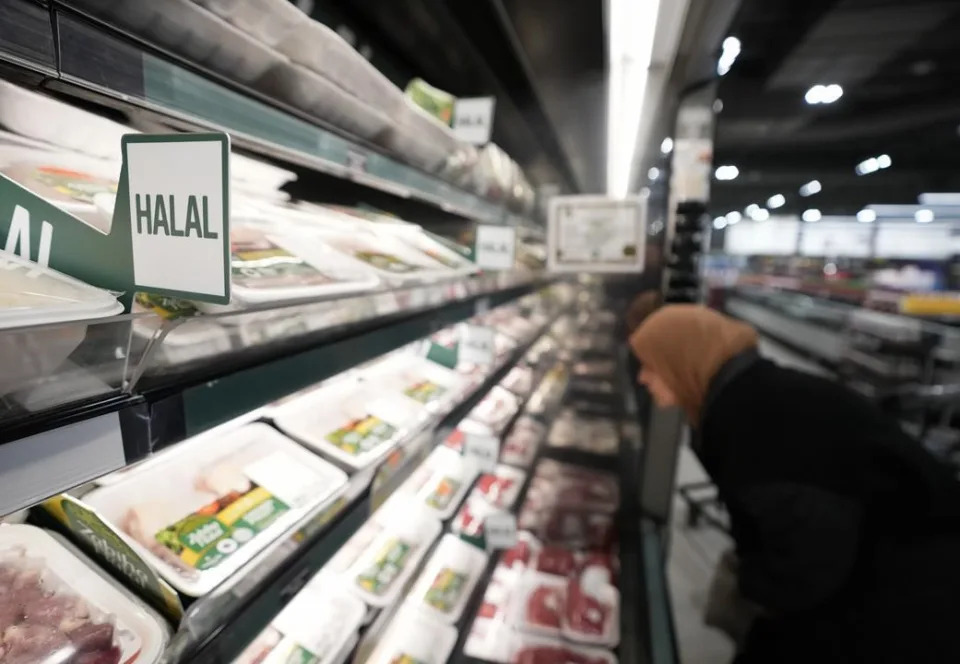 Japan, a country that is currently pursuing a foray into the global halal industry, is experiencing strong interest for the country’s first-ever halal fund, launched last year with the aim of providing money to regional small and medium Japanese companies to develop and offer Shariah-compliant products and services, mainly food, and to help them export to global Muslim markets.
Japan, a country that is currently pursuing a foray into the global halal industry, is experiencing strong interest for the country’s first-ever halal fund, launched last year with the aim of providing money to regional small and medium Japanese companies to develop and offer Shariah-compliant products and services, mainly food, and to help them export to global Muslim markets.
The fund, called “PNB-Inspire Ethical Fund”, has been created by Japanese venture capital firm Inspire and Malaysia’s government-backed asset manager Permodalan Nasional Berhad (PNB) and is working with institutions connected to the Malaysian government to help Japanese companies get a much-needed halal certification for their products.
At the time of launch in May 2014, investors such as Hiroshima Bank, Oita Bank, Hokuto Bank, Shonai Bank, Fuyo General Lease and Japan’s Organisation for Small and Medium Enterprises and Regional Innovation provided a total around 5 billion yen ($42.6 million) to the fund. In mid-January 2015, it was announced that four more investors – Tohoku Bank, Michinoku Bank, The Eighteenth Bank and an investment company of Ogaki Kyoritsu Bank – have joined the fund and would invest between 50 million and 100 million yen each, and more regional banks have expressed interest in the fund.
Target markets for fund-supported companies are large Muslim countries in Southeast Asia such as Malaysia and Indonesia, as well as the Middle East. There is also rising demand on the home market, as Japan is pushing its halal tourism industry. In turn, Japan’s small and medium businesses outside of metropolitan areas get a much-needed boost for their business.
In addition to the small and medium business halal fund, Tokyo-based Mizuho Bank is working on establishing a 50 billion-yen ($426 million) private equity fund called “Gulf Japan Food Fund” together with agricultural cooperative bank Norinchukin Bank to provide financing for export of food and agricultural products from Japan to the Middle East and related infrastructure such as temperature-controlled warehouses. The fund also plans to finance the set-up of food processing factories for fresh fruits and vegetables and even aquacultural facilities. Investment partner in the Middle East is Kuwait-based Gulf Investment Corp. (GIC), a sovereign wealth fund jointly set up by the six Gulf Cooperation Council member countries. GIC will contribute 23 billion yen to the fund.
“We will also establish a subsidiary in Dubai to operate the fund going forward,” said Nobuhide Hayashi, Mizuho’s president and CEO. “The fund is scheduled to commence investment operations in around the spring to summer of 2015 once it has received capital from its investors,” he added.
The time to enter the global halal food market is obviously well chosen by Japan. At the recent edition of Middle East’s biggest food show, Gulfood 2015 held from February 8 to 12, visitors learned that the global halal food market has reached a value of $1.1 trillion annually, which now accounts for 20 per cent of the entire global food trade.
Japans overall food exports including aquacultural products totaled $3.1 billion in 2013 as per the latest available figures, a number that the government in Tokyo wants to boost to more than $28 billion by 2030, also with the help of halal products. However, food exports to the six Gulf countries are currently making just a small part of it with just $40 million in 2013, but the goal has been set to massively increase this value to more than $1.1 billion in the same period.


![Japan: HDC Continues Working Relationship between Malaysia and Japan Advancing Halal Trade Initiatives Dato’ Seri Dr. Ahmad Zahid Hamidi chaired the Roundtable Session Osaka[45]](https://halalfocus.net/wp-content/uploads/2024/02/Dato-Seri-Dr.-Ahmad-Zahid-Hamidi-chaired-the-Roundtable-Session-Osaka45-150x150.jpg)
